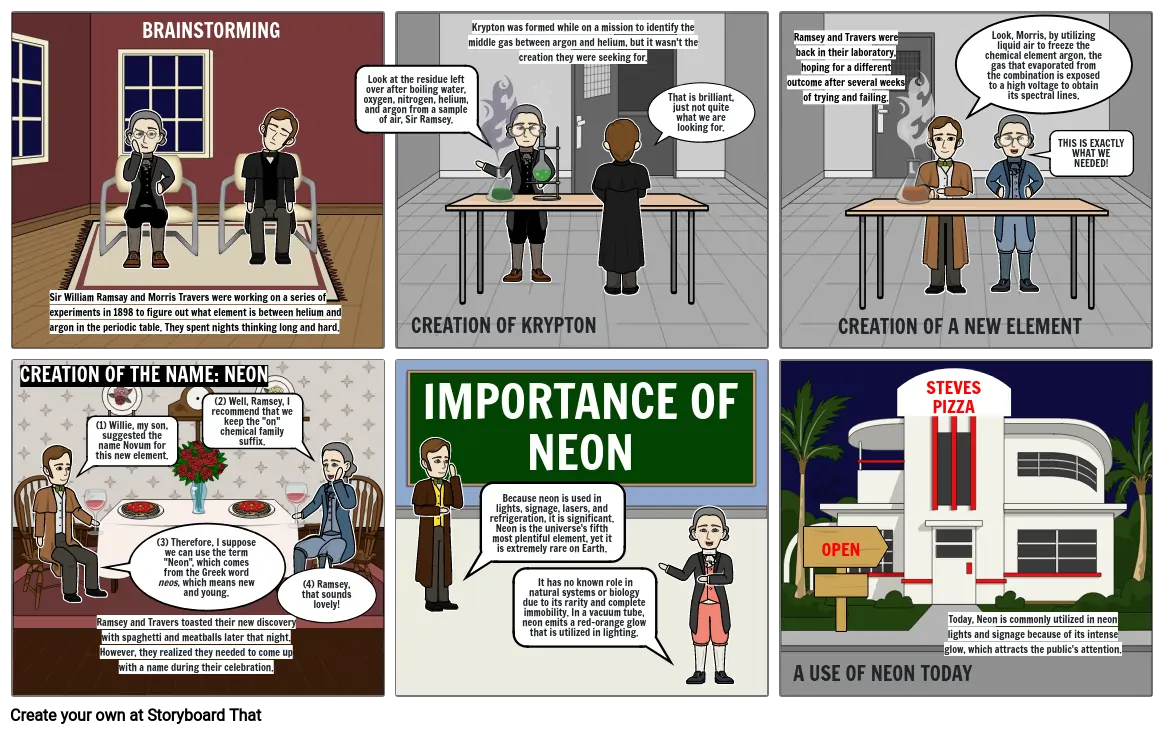History of the Element: Neon

Storyboard Text
- CREATION OF THE NAME: NEON
- Sir William Ramsay and Morris Travers were working on a series of experiments in 1898 to figure out what element is between helium and argon in the periodic table. They spent nights thinking long and hard.
- BRAINSTORMING
- Look at the residue left over after boiling water, oxygen, nitrogen, helium, and argon from a sample of air, Sir Ramsey.
- CREATION OF KRYPTON
- Krypton was formed while on a mission to identify the middle gas between argon and helium, but it wasn't the creation they were seeking for.
- That is brilliant, just not quite what we are looking for.
- Ramsey and Travers were back in their laboratory, hoping for a different outcome after several weeks of trying and failing.
- CREATION OF A NEW ELEMENT
- Look, Morris, by utilizing liquid air to freeze the chemical element argon, the gas that evaporated from the combination is exposed to a high voltage to obtain its spectral lines.
- THIS IS EXACTLY WHAT WE NEEDED!
- (1) Willie, my son, suggested the name Novum for this new element.
- Ramsey and Travers toasted their new discovery with spaghetti and meatballs later that night. However, they realized they needed to come up with a name during their celebration.
- (3) Therefore, I suppose we can use the term "Neon", which comes from the Greek word neos, which means new and young.
- (2) Well, Ramsey, I recommend that we keep the "on" chemical family suffix.
- (4) Ramsey, that sounds lovely!
- IMPORTANCE OF NEON
- Because neon is used in lights, signage, lasers, and refrigeration, it is significant. Neon is the universe's fifth most plentiful element, yet it is extremely rare on Earth.
- It has no known role in natural systems or biology due to its rarity and complete immobility. In a vacuum tube, neon emits a red-orange glow that is utilized in lighting.
- A USE OF NEON TODAY
- OPEN
- STEVES PIZZA
- Today, Neon is commonly utilized in neon lights and signage because of its intense glow, which attracts the public's attention.
Over 30 Million Storyboards Created

